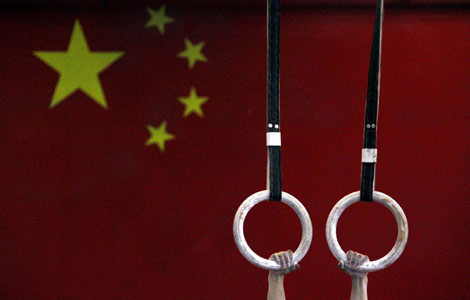Seeking stability in Asia Pacific
Updated: 2011-06-28 07:50
By Shen Dingli (China Daily)
|
||||||||
It is vital to ensure that the US gradual troop withdrawal goes smoothly, and to secure the cooperation of all stakeholders toward this end. A China-US consultation right before the US armed forces start to leave Afghanistan next month could bode well for their mutual understanding and cooperation in China's west periphery over the next decade.
Northeast Asia is a key region in Asia-Pacific that tends to brew uncertainty, which was further substantiated through the turbulence there last year. On the one hand, Beijing and Washington share a fundamental interest in the peace and stability of the Korean Peninsula and its vicinity, as evidenced by their participation in the Six-Party Talks. On the other hand, Northeast Asia is prone to being unstable and the Sino-US relationship is often plagued by all sorts of incidents, such as the sinking of the Republic of Korea's frigate the Cheonan and the shelling of Yeonpyeong in 2010. If handled improperly, such incidents could widen the distrust between China and the US and hold the two countries hostage.
Therefore, a Sino-US consultation mechanism on Asia-Pacific affairs, a derivative of their bilateral Strategic and Economic Dialogue, should specifically target the thorny issues that increase their mutual suspicion and threaten the stability of the Asia Pacific.
As major powers, China and the US share a tremendous amount of common interests while also having various concerns toward each other, many of which are understandable. After two exhaustive wars in Asia in the last decade, the US is having to readjust to the shifting balance of power and re-focus on the traditional security matters among nation states. While the US has benefited from its extensive cooperation with China, it is also aspiring to mitigate uncertainties through all sorts of hedging.
As a power that has peacefully emerged from existing international system, China increasingly benefits from the freedom of navigation, and has been a lead nation in signing and ratifying the United Nations Convention on the Law of the Sea. It also signed the Declaration on the Conduct of Parties in the South China Sea in 2002, which commits it, along with ASEAN members, to the principle of settling relevant disputes through peaceful means. These form the basis for the China-US consultation and affirm their mutual confidence. When these two countries are clear on each other's legitimate interests, they are more ready to forge common development and security conducive to the entire region.
Making the Pacific peaceful requires the efforts of both parties. Contemporary international laws are applicable to all countries, in all facets of international relations. China and the US have tens of official dialogues established already, but this new consultation mechanism will play its due role, and should be helpful to their positive, cooperative and comprehensive partnership.
The author is professor and executive dean of Institute of International Studies, and director of Center for American Studies, Fudan University.
(China Daily 06/28/2011 page8)











